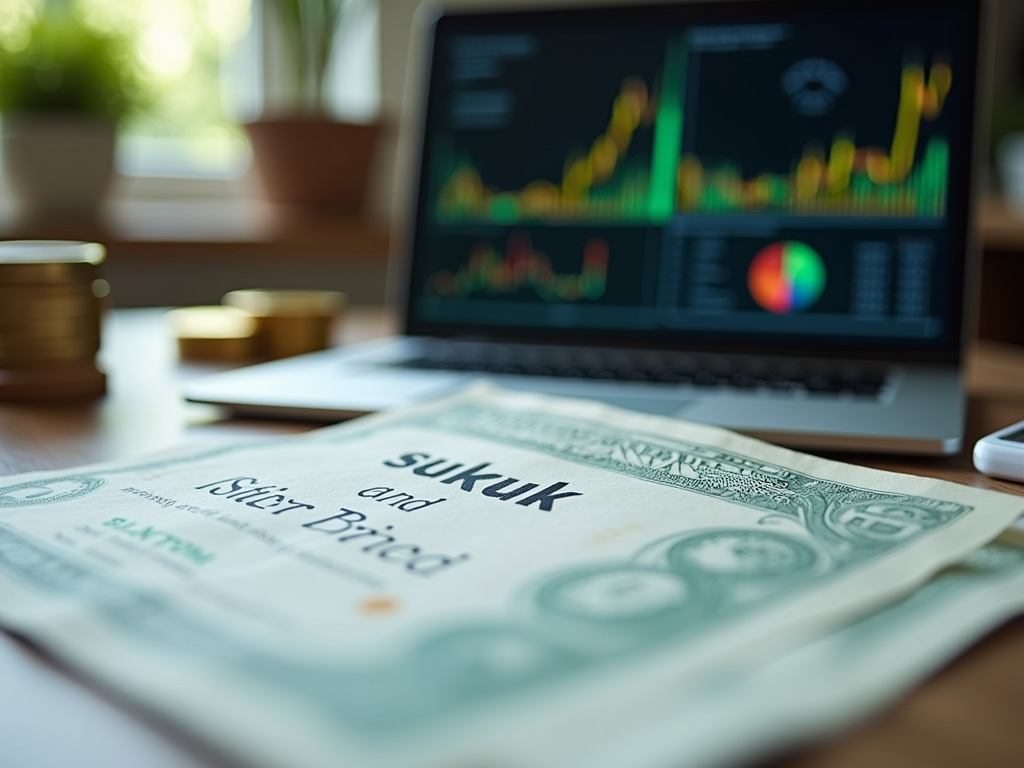Dubai is increasingly becoming a global hub for Islamic finance, offering a variety of investment and financing opportunities that are compliant with Sharia law. The Islamic finance market in Dubai is not only growing rapidly but is also diversifying. From sukuk (Islamic bonds) to Islamic banking products, the financial landscape is ripe for both local and international investors. With a strong regulatory framework, a burgeoning economy, and a growing demand for ethical finance, the opportunities available in Dubai’s Islamic finance market are vast and varied.
The Growth of Islamic Finance in Dubai

The Islamic finance sector in Dubai has demonstrated considerable resilience and growth, particularly over the past decade. The Emirate’s strategic location, diverse economy, and vision to be the world’s leading Islamic economy have propelled the growth of this niche financial sector. Key factors contributing to this growth include:
- Government Support: The Dubai government and the UAE Central Bank have established policies and regulations that encourage the growth of Islamic financial institutions.
- Innovation: Financial technology (fintech) is driving innovation within the Islamic finance sector, making products more accessible to consumers.
- Diverse Products: There is a growing array of Islamic finance products, including Islamic investment funds, real estate investment trusts (REITs), and sukuk.
- Global Demand: An increasing global interest in ethical and socially responsible investments has drawn attention to Islamic finance.
- International Collaborations: Partnerships with global financial institutions are enhancing the visibility and efficacy of Dubai as an Islamic finance hub.
Investment Opportunities in Islamic Finance

Investors interested in Dubai’s Islamic finance market can explore various investment opportunities tailored to align with ethical standards. Primarily, these opportunities can be classified into the following categories:
- Sukuk: Investing in Islamic bonds where returns are derived from asset performance rather than interest.
- Islamic Equity Funds: Participating in equity markets through funds that comply with Sharia principles.
- Real Estate Investments: Engaging in property investments through Sharia-compliant investment vehicles.
- Islamic Banking: Exploring savings and loan products offered by Islamic banks, which do not charge interest but rather utilize profit-sharing models.
- Microfinance: Supporting small and medium-sized enterprises (SMEs) with investments aimed at social impact.
Challenges Facing Islamic Finance
While opportunities abound, the Islamic finance market in Dubai also faces its own set of challenges that investors should consider. Key challenges include:
- Lack of Standardization: Different interpretations of Sharia compliance can lead to inconsistency in financial products.
- Limited Awareness: Many potential investors still lack a thorough understanding of Islamic finance principles and products.
- Regulatory Hurdles: Navigating the regulatory environment can be complex, especially for international investors unfamiliar with local practices.
- Market Competition: Intense competition among Islamic financial institutions can erode profit margins.
- Global Economic Factors: Political instability and economic fluctuations can impact the performance of Islamic finance products.
Dubai’s Islamic finance market is expected to evolve further, with several trends shaping its future trajectory. Notable trends include:
- Fintech Integration: The rise of digital platforms will simplify access to Islamic finance products, enhancing customer experience.
- Green Sukuk: The issuance of eco-friendly sukuk will cater to the growing demand for sustainable and responsible investing.
- Diversity of Investors: Increasing participation from both local and international institutional investors will bolster the market.
- Regulatory Developments: Continued regulatory advancements and collaborations will promote market confidence.
- Globalization of Islamic Finance: The expanding reach of Islamic finance into non-Muslim-majority countries, as awareness and acceptance of ethical investment principles grow.
Conclusion
Dubai’s Islamic finance market presents a myriad of opportunities that are well-positioned for future growth. With sound government backing, innovative financial products, and increasing global demand for ethical investments, the sector is set to thrive. While it is important to be cognizant of the challenges present, the potential rewards far outweigh the risks for those willing to navigate this unique financial landscape. Investors looking to diversify their portfolios ethically will find Dubai’s Islamic finance market an inviting destination.
Frequently Asked Questions
1. What is Islamic finance?
Islamic finance refers to financial activities that adhere to Islamic law (Sharia), prohibiting interest (riba) and promoting ethical investing. Investments must contribute positively to society and avoid industries such as alcohol, gambling, and pork.
2. How is sukuk different from traditional bonds?
Sukuk are Islamic financial certificates that represent ownership in a tangible asset or project, providing returns based on asset performance instead of interest payments, which are prohibited under Sharia law.
3. Are there any tax benefits for investing in Islamic finance in Dubai?
Dubai offers a favorable tax environment, including no income tax for corporations and individuals, which can enhance the attractiveness of Islamic finance investments.
4. What is the role of the Dubai Islamic Economy Development Centre (DIEDC)?
The DIEDC plays a crucial role in promoting the Islamic economy by developing strategic initiatives, policies, and regulations that foster growth in the Islamic finance sector.
5. Can non-Muslims invest in Islamic finance products?
Yes, non-Muslims can invest in Islamic finance products, as these financial instruments are designed to attract a broader audience interested in ethical and sustainable investing.


